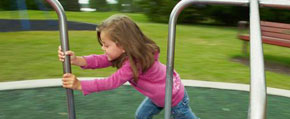We are pleased to announce an exciting new alliance between Active Living Research and GP RED to co-host and coordinate...
Active Education: Physical Education, Physical Activity and Academic Performance
The Challenge: Children who are physically active and fit tend to perform better in the classroom, but many schools allow little to no time for students to be active.
Make an impact: Policies that support daily physical education and regular activity breaks during the school day can help increase physical activity, improve academic performance and improve classroom behavior among students.
What the findings are about: This research shows that children who are physically active and fit tend to perform better in the classroom and that daily physical education does not hurt academic performance.
- Physically active and fit children tend to have better academic achievement, better school attendance and fewer disciplinary problems.
- Allocating time for daily physical education does not hurt academic performance, and regular exercise may improve students’ concentration and cognitive functioning.
- In some cases, more time in physical education leads to improved grades and standardized test scores.
- Physical activity breaks can improve cognitive performance and classroom behavior.
FACT SHEET:
An abbreviated fact sheet is available that highlights the research brief's main findings.
UPDATED RESEARCH BRIEF:
A new Research Brief, published in December 2014, updates the evidence on the role of physical activity in academic performance: Active Education: Growing Evidence on Physical Activity and Academic Performance
- DOWNLOAD "Active Education: Physical Education, Physical Activity and Academic Performance" PDF (0.52 MB) Research Briefs & Syntheses
Related Tools & Resources
STAY UP TO DATE
RECENTLY ADDED TOOLS & RESOURCES
MOVE! A BLOG ABOUT ACTIVE LIVING
The "Active Living Conference" aims to break down research and practice silos and...








